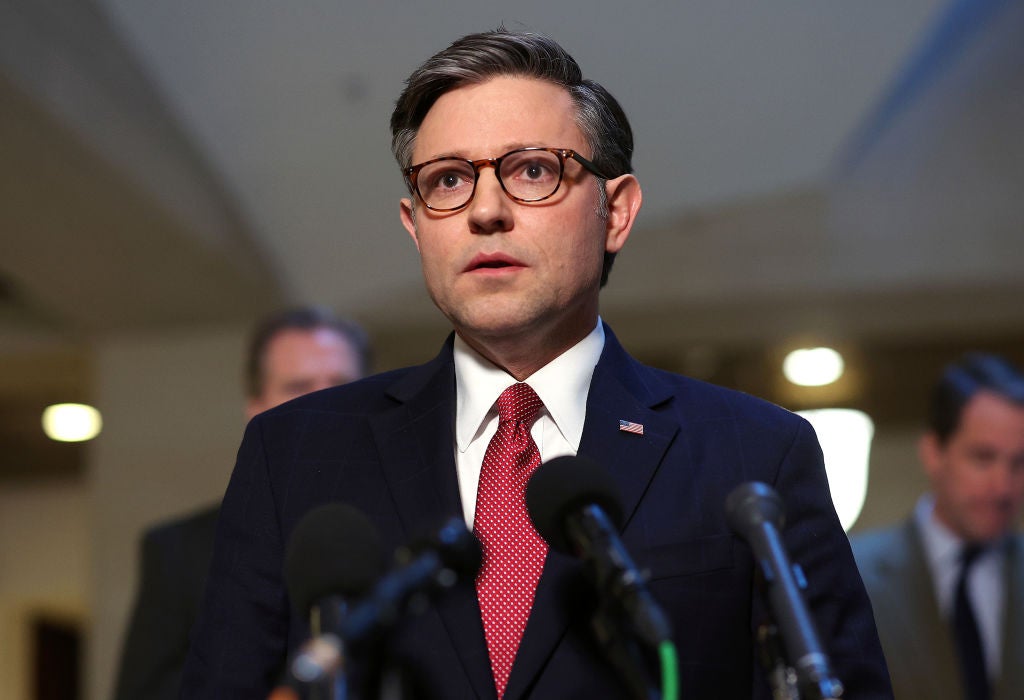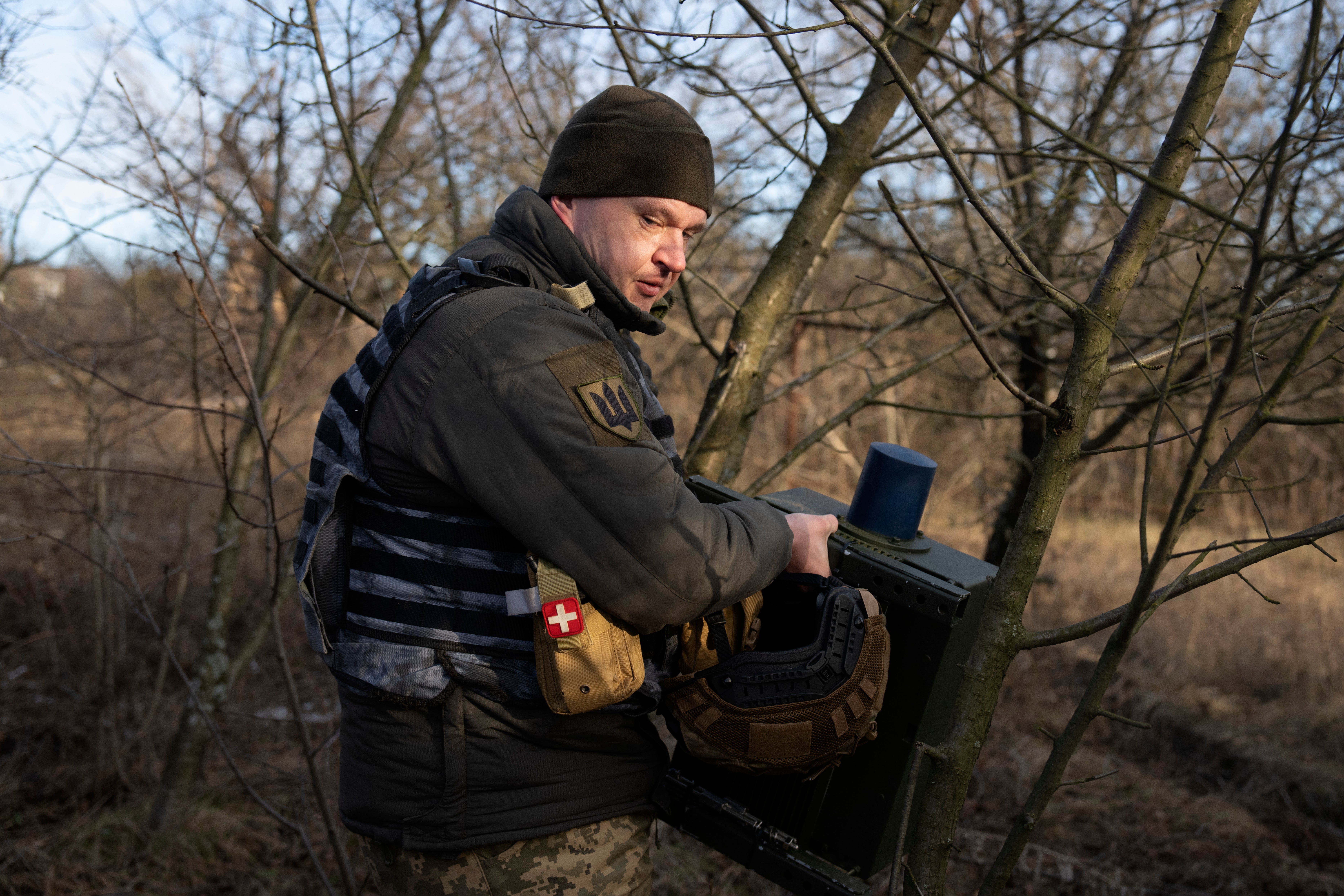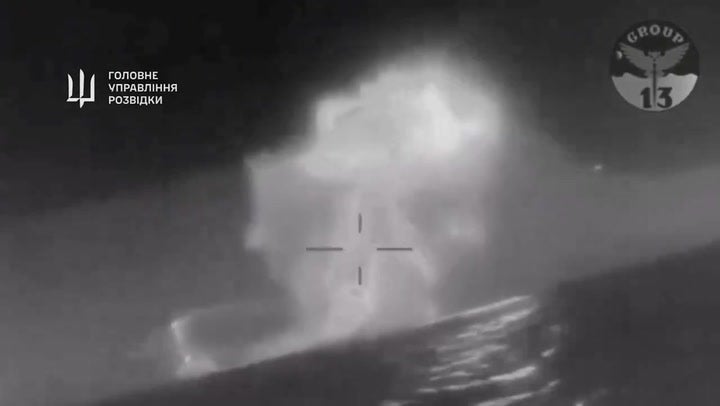Ukrainian forces can only hold off Russia till 2025, say analysts
Ukrainian prospects for victory in its war against Russia are thinner now than last year. More Western aid is vital to the fight
Your support helps us to tell the story
From reproductive rights to climate change to Big Tech, The Independent is on the ground when the story is developing. Whether it's investigating the financials of Elon Musk's pro-Trump PAC or producing our latest documentary, 'The A Word', which shines a light on the American women fighting for reproductive rights, we know how important it is to parse out the facts from the messaging.
At such a critical moment in US history, we need reporters on the ground. Your donation allows us to keep sending journalists to speak to both sides of the story.
The Independent is trusted by Americans across the entire political spectrum. And unlike many other quality news outlets, we choose not to lock Americans out of our reporting and analysis with paywalls. We believe quality journalism should be available to everyone, paid for by those who can afford it.
Your support makes all the difference.Ukrainian forces have no choice but to dig in and defend against a resurgent Russian army after running desperately low of ammunition with no prospect of immediate resupply, officials and analysts have told The Independent.
For the first time since the early stages of Putin’s full-scale invasion, Ukraine has lost the initiative and, handcuffed by an absence of Western support, it will not be able to regain it this year, they warned.
As the war enters its third year, The Independent examines the state of the frontline and what the year ahead could look like.
Land
Russia made its first significant territorial gain in nearly a year earlier this month when they captured the eastern Ukrainian city of Avdiivka. It was the first major material sign that Russia had seized the initiative on the frontline.
For months, they launched costly assaults on the city reminiscent of earlier attacks on the nearby city of Bakhmut last year - but to no avail.
They have since succeeded because vital additional US military support has been blocked since last October by Republican representatives in Congress who say money should be spent not on Ukraine but on shoring up their southern border with Mexico.

That has resulted in an artillery disadvantage of roughly five to one, according to Western estimates, and allowed Russian forces to move forwards and attack Ukrainian positions.
Meanwhile, Russian artillery is still pounding Ukrainian strongholds from a distance.
“We often only get three shells to hit a target and the expectation is that that will be enough, whereas they can easily fire 20 shells at one target,” one artillery commander in eastern Ukraine told The Kyiv Independent earlier this month.
European support has also been lacking. Next month, the deadline expires on a bloc promise to give Ukraine one-million artillery shells. As of last month, they had delivered only half that amount.
Without additional support, Ukraine will be handcuffed.
“All eyes are now on the US,” says John Foreman, a former UK defence attaché to Moscow and Kyiv. “This is a time of increasing concern about Ukraine’s ability to defend itself”.
Air

In 2023, Ukraine pioneered the use of single-use commercial drones on the frontline, notably first-person view (FPV) models. They were used to great effect, attacking Russian positions while costing significantly less and, because they could be produced inside Ukraine, circumvented the issues of Western supply chains.
Earlier this week, UK defence minister Grant Shapps celebrated Ukraine’s pioneering work with these drones.
But in 2024, Russia is now mass producing these drones and the advantage, initiated by Ukrainian innovation, has been lost, says Justin Bronk, a senior fellow at the Royal United Services Institute, a UK-think tank.
“They do not offer any asymmetric advantage for Ukrainian forces,” he says. “And they cannot substitute for the vital role that artillery plays in breaking up and attritting infantry attacks on the Ukrainian lines, where volume of explosive fire and rapid response times are critical.”
He added that the drones’ inability to work in difficult weather conditions, as well as suffer interruption from electronic warfare, limited their benefits.
Ukraine is expected to receive its first US-made F-16 fighter jets in June but Mr Bronk suggested the small quantity being supplied undermine their ability to help achieve air superiority against Russia.
Sea

The picture is less dire in the battle for the Black Sea.
Ukraine has destroyed seven different Russian surface ships, plus a submarine, and a Black Sea corridor has opened up for trade, vital to Ukraine’s ability to export.
Andriy Ryzhenko, a former officer in the Ukrainian navy, suggested Ukraine would not be able to remove Russia’s navy completely from Crimea but noted they had succeeded in displacing dozens of ships from the peninsula already.
He said Ukraine could look to now attack those displaced ships, most of which are in the port of Novorossiysk, more than a hundred miles from Crimea.
In a paper written by Michael Koffman, Dara Massicot and Rob Lee, the three leading analysts for the war in Ukraine, they wrote that 2024 will be a difficult year for Ukraine.
“Russia holds material, industrial and manpower advantages in 2024, along with the initiative,” they wrote.
Ukraine’s only chance, they suggested, is to hold the lines this year and concurrently build up weapons and manpower supplies, as well as striking middle to long-range targets, including in the Black Sea.
In the meantime, they have to hope that US support is finally unblocked.

Join our commenting forum
Join thought-provoking conversations, follow other Independent readers and see their replies
Comments